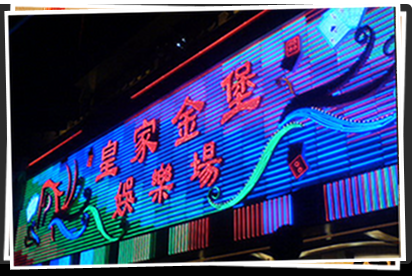Macau’s casinos don’t know their customers, their marketing teams are not very efficient, and there is a looming overcapacity crunch that could see a shakeout if current market conditions turn downwards. That, in a nutshell, is the delivered wisdom of Sudhir Kale, professor of Marketing at Bond University’s School of Business in Australia and a visiting professor at the University of Macau.
In an interesting interview with the Macau Daily Times, the Australian academic – who just happens to have a consulting service that could, for a fee, solve all these problems for the concessionaires – makes some valid points. Macau’s marketing dollars are in many cases not being spent in a very accountable way. The quantity and quality of consumer research being done here is pitiful – something our company, ahem, has been trying to rectify, too. And if, heaven forbid, Chinese gamblers were forced to start choosing underground casinos closer to home rather than the bright lights and dim saunas of Macau, there would indeed be one or two operators caught with their pants down, figuratively speaking.
But, as always, the devil is in the details where any prognosis of Macau’s market is concerned. There are big and growing differences between the operators, for a start, and we take issue with Kale’s assessment that none of them know their customer while only two – SJM and Wynn – would be prepared to survive a serious downturn. We will be producing an in-depth survey of Macau’s brands later this month in conjunction with Deutsche Bank, and will go into greater detail then for our readers. Suffice to say now that the big three properties – Venetian (Sands China), Grand Lisboa (SJM) and Wynn Macau – are clear leaders in their categories, and visitors have a strong understanding of their brands and value offerings. The flagship properties of the other three have a way to go to catch up, and are sometimes guilty of doing too much guesswork which has led to too much trial and error. But at the same time, it is hard to know what else they could have done under the circumstances, and we do see evidence of a growing understanding among all three – City of Dreams (MPEL), Galaxy Macau (Cotai project pending), and MGM Macau – that they need to do more to know their customers before offering them something they will not necessarily accept enthusiastically. Moreover, they are making serious money despite being in fourth, fifth and sixth place, this market is still in its infancy, and its core customer base is showing an incredible ability to evolve and mature its understanding of new value offerings presented in Macau, with the rise of per-capita shopping spending being the foremost indicator of this. Trial and error is a necessary component of any business plan here at the moment.
The most important question that Kale raises, however, does need closer consideration. Is Macau heading for a glut of capacity that would bring down or seriously impair any of the concessionaires if current market conditions were to suddenly deteriorate? Our answer would have to be an emphatic no. Serious challenges lie ahead for Macau in improving its infrastructure and raising its profile as a leisure and MICE destination, but demand among gaming visitors from China is going to absorb the capacity coming onto the market for the foreseeable future. This might not always happen at a pace the concessionaires consider ideal. There will be bumps, there will be ups and downs, but the arrow on the chart is pointing sharply upwards for the next decade as China continues its march towards middle-income country status. Hotel occupancy rates are back in the high-90s. Mass gaming floors are bulging. To not build new capacity now would be irresponsible.
Even if a big bump comes, who would not be able to survive it? Sands China is not going to make the same mistake as it did in 2008 by being over-leveraged, and its positioning in the mass market and premium-direct is the most sustainable. Galaxy is a company known for cash-hoarding management and conservative investment decisions. MGM Macau is probably heading for some structural changes ahead of or during its planned IPO, but Pansy Ho’s personal financial resources are beyond question. Melco-Crown may be the Ethan Hunt of Macau’s gaming market, having performed one seemingly mission impossible after another to get where it is today, but its finances are in sound shape now and City of Dreams is kicking off enough cashflow to assuage its investors fears; all it needs to do now is grow into its skin out there in Cotai.
The picture is not perfect. There is lots more for the gweilo-heavy management teams of the Big Six to learn about their predominantly Chinese customers, and there is lots of opportunity ahead for smart locals to step up and teach them. There will be winners and losers, and market shares will shift as new properties open. But we have never seen such an intensely competitive business environment anywhere on the planet. And where there is competition, there is progress. We see faster progress ahead than many observers, Kale included, could possibly appreciate right now. Stay tuned.
Used with permission & copyright to IntelMacau





















